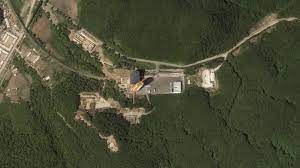A North Korean satellite launch on Wednesday ended in failure, sending the booster and payload plunging into the sea, North Korean state media said, and the South's military said it had recovered parts of the launch vehicle.
The new "Chollima-1" satellite launch rocket failed because of instability in the engine and fuel system, state news agency KCNA reported.
The flight was the nuclear-armed state's sixth satellite launch attempt, and the first since 2016. It was supposed to put North Korea's first spy satellite in orbit.
It prompted emergency alerts and brief evacuation warnings in parts of South Korea and Japan. The notices were withdrawn with no danger or damage reported.
South Korea's Joint Chiefs of Staff said on Wednesday the military was conducting a salvage operation to recover what is believed to be parts of the space launch vehicle.
The military shared pictures of debris pulled from the water, including a large cylindrical object tethered to a buoy.
George William Herbert, adjunct professor at the Center for Nonproliferation Studies and a missile consultant, said the images showed at least part of a rocket, including an "interstage" section designed to connect to another stage.
It is most likely a liquid-fuel rocket, and a round, brown object inside is likely a propellant tank for either fuel or oxidizer, Herbert added.
Officials from the United States, Japan, South Korea held a phone call, where they “strongly condemned" the launch, Japan’s foreign ministry said.
“The three countries will stay vigilant with high sense of urgency”, the statement said.
North Korea had said it would launch its first military reconnaissance satellite between May 31 and June 11 to boost monitoring of U.S. military activities.
South Korea last week placed satellites in orbit with a domestically designed and produced rocket for the first time, and China sent three astronauts to its space station as part of crew rotation on Tuesday.
Reuters
More about:
















































